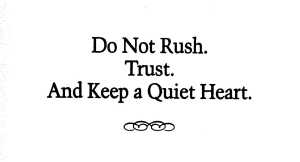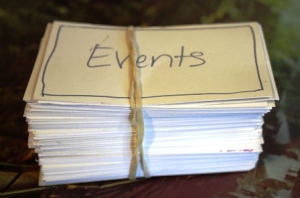For the last two weeks I’ve had the flu! What fun.
Actually, it was kinda. Last year when we got the flu after our Christmas trip, I read a Vince Flynn book that I’d had on my shelf for ages: Transfer of Power. I enjoyed it a great deal.
I’d read his first novel, Term Limits, years ago and thought it was really lame and juvenile, so I never tried another. But he went on to become a very popular, best-selling author, so I decided, in the hopes that he had improved his skills over time, I would try his second book, mentioned above. Surprise! I liked it.
Of course I did have the flu, and it was a welcome diversion from the wretchedness of being ill, but really, I thought it was pretty good. Transfer of Power is the first one where his series hero, Mitch Rapp is the main character, and it is about terrorists taking control of the White House, killing dozens and taking hundreds hostage. Rapp, the CIA’s “top counterterrorism operative” is sent in to take care of the problem.
With this most recent bout of the flu, I turned to Flynn again, seeing as I had found at the used bookstore the next two of his novels in the series: The Third Option and Separation of Power.
I read both, back to back, all the while going through boxes of Kleenex almost as if I were some sort of Kleenex soiling machine. (I couldn’t believe how fast I went through them, nor how much “stuff” I had to soil them with!)
The verdict? I enjoyed both books, though I struggled at bit with The Third Option at the beginning because I kept getting lost. Finally about a quarter of the way through, when I realized I had no idea what was going on, I wondered if I was no longer capable of reading books as complex as these with my aging brain… Or was the problem really Flynn simply not being clear? After all, the characters in The Third Option had been presented as if I should know who they were, but I couldn’t remember any of them and there were no reminders for those who might be in my position.
Finally I went back and dug up my old reviews of Term Limits, his first book, and made my first discovery — the characters I was puzzling over In Transfer of Power were indeed the main characters in Term Limits. A book I’d read 11 years ago! No wonder I couldn’t remember them nor the operations they’d taken part in!
I also went back to the beginning of The Third Option and started going through the writing itself, just to see if it really wasn’t very clear. (This is the kind of thing a writer does. Normal people probably don’t. If you are an aspiring writer, however, I recommend you do this… It can be very enlightening and help you avoid similar mistakes)
And what was the result of my investigation of technique? The writing was, indeed, unclear.
For one thing, Flynn writes from the omniscient point of view, which means he jumps into any characters’ viewpoint whenever he wishes all within the same scene. The problem with this type of point of view (pov) is that if you’re not careful you can lose your reader along the way, and that’s exactly what happened. You have to be very clear you’re making a pov jump and to whose point of view you are jumping, which Flynn didn’t always do.
For example, the first chapter starts in Rapp’s point of view where he’s walking alone through the woods in Germany, reconnoitering the estate he is about to “invade,” then returns to a cabin where his two teammates have set up. He enters. There’s some description of the man and woman already there, the interior, and some equipment. Then it says
“Rapp had never met the man and woman before. He knew them only as Tom and Jane Hoffman. They were in their mid-forties, and as far as Rapp could tell, they were married. The Hoffmans had stopped in two countries before arriving in Frankfurt. Their tickets had been purchased under assumed names with matching credit cards and passports provided by their contact. They were also given their standard fee of ten thousand dollars for a week’s work, paid up-front in cash. They were told someone would be joining them and, as always not to ask any questions.”
All of that is consistent with Rapp’s point of view, which we were clearly in. In the next paragraph, there’s no reason to think it’s not Rapp’s as well, recalling things the Hoffman’s have told him about their journey to this point (or perhaps that he knew from other sources since he’s running this operation):
“All of their equipment was waiting for them at the cottage when they arrived. They started right in on surveillance of the estate and its owner. Several days later they were paid a visit by a man known only to them as the professor. They were given an additional twenty-five thousand dollars and were told they would receive another twenty-five thousand dollars when they completed the mission. He had given them a quick briefing on the man who would be joining them…”
The problem is that this second paragraph is all from the Hoffman’s pov and includes information Rapp does not have. But there’s nothing in the text to give you even a hint of that. In fact, in paragraph one they’re told by their contact that someone will be joining them and in paragraph two that this “professor” has joined them… so… it seemed logical to put those two together, all of it stuff that Rapp knows about.
Except that he doesn’t, as I said, the viewpoint having shifted out of Rapp’s specific awareness at the end of paragraph one and into a general omniscient. And since that’s not remotely clear, the result is confusion on the reader’s part. At least on this reader’s part.
You could say this was the fault of the reader not reading carefully enough, but I disagree. As an author, you want the reader to rip through your story, especially if it’s a thriller. They aren’t going to be reading carefully, they’re reading to find out what happens and “How is he going to get out of this?!”
No, it’s up to the author to make it all clear and smooth so the reader always knows through whose eyes he’s experiencing the story. C.S. Lewis once said something to the effect of (I’m paraphrasing) “Readers are like sheep going down a path. If there’s any way for them to go besides the way you want them to, that’s where they’ll go. Hence, you have to make sure that every gate is closed to them except the ones you want them to go through.”
I don’t think Flynn did such a great job of that in The Third Option, at least not in the beginning. Once I had figured it all out, though, I enjoyed the book quite a bit. And it was especially good to know I wasn’t all washed up as a reader of complicated political/military thrillers, which I love! 🙂










